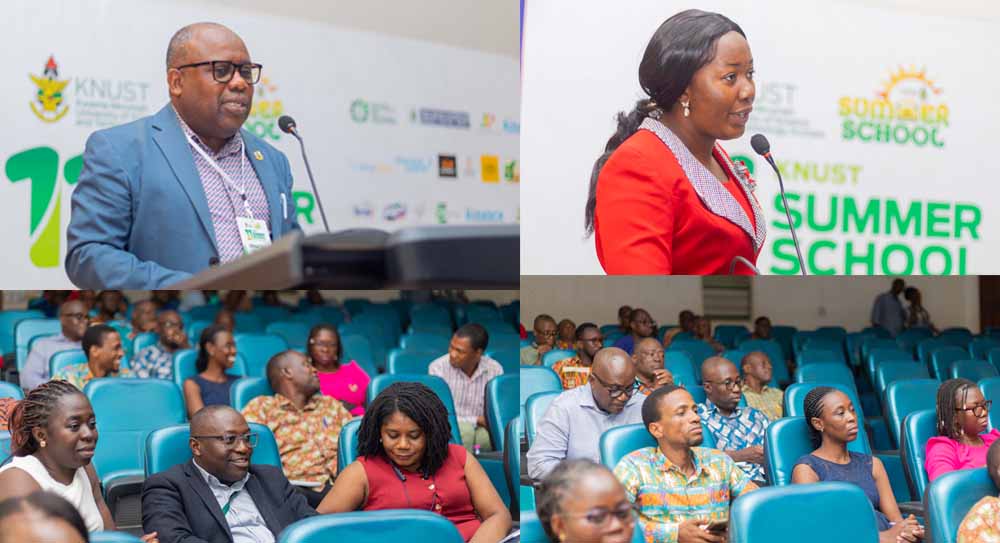Dr. (Mrs.) Rose-Mary Owusuaa Mensah Gyening, a Senior Lecturer at the Department of Computer Science, has called for greater access and inclusivity in the development and use of Artificial Intelligence (AI), urging that AI initiatives represent and serve diverse groups equitably.
She made the call at the opening of the College-level session of the 11th KNUST Summer School held under the sub-theme ‘AI in Science and Technology Research.’
“Inclusivity is a foundation for sustainable AI transformation. Responsible AI ensures fairness, transparency, and inclusivity,” Dr. Gyening said.
She proposed that to promote access and inclusivity through institutional, pedagogical, research, and policy frameworks, the College should establish a shared AI laboratory, partner with open-source groups, and introduce an AI foundation course.
Dr. Gyening also stressed the need to build a data repository to support future research outcomes. She noted that most data currently used for research are not sufficiently localized and encouraged researchers to volunteer data they collect to improve contextual relevance and influence research results.
She further highlighted the importance of cross-departmental AI projects and interdisciplinary collaboration across other fields to leverage automated tools that enhance research.
Addressing emerging ethical issues of AI in teaching and learning, Dr. Gyening emphasized the need to set clear AI-use policies in course outlines, redesign assessments to prioritize critical thinking, and promote AI literacy among students.
“We need to maintain human oversight, define what is acceptable and what constitutes misconduct, promote citation ethics, and train students on how to evaluate AI output and verify accuracy,” she said.
Dr. Gyening also called for the operationalization of institutional AI strategies, the establishment of training programmes, and the creation of AI-use guidelines. She encouraged the promotion of open dialogue and the adoption of frameworks such as UNESCO’s Recommendation on the Ethics of Artificial Intelligence.
“Ethics is not a restriction; it’s a compass. KNUST can lead Ghana’s higher education sector in shaping ethical, context-aware AI adoption. The future of science depends not only on what AI can do, but on what we decide it should do,” she concluded.
Provost of the College of Science, Prof. Leonard Amekudzi, reaffirmed the College’s commitment to advancing AI research and innovation within the university.
“Our goal is not only for KNUST to use AI, but to contribute to its advancement, developing algorithms and applications that reflect African realities,” he said.
He added that the world is watching how African universities, including KNUST, position themselves in the era of intelligent technologies.
“Let us rise to the challenge, blending our scientific excellence with ethical foresight and human compassion. The College of Science must take the lead in driving the University’s agenda on AI integration in research, teaching, and innovation,” he urged.

















